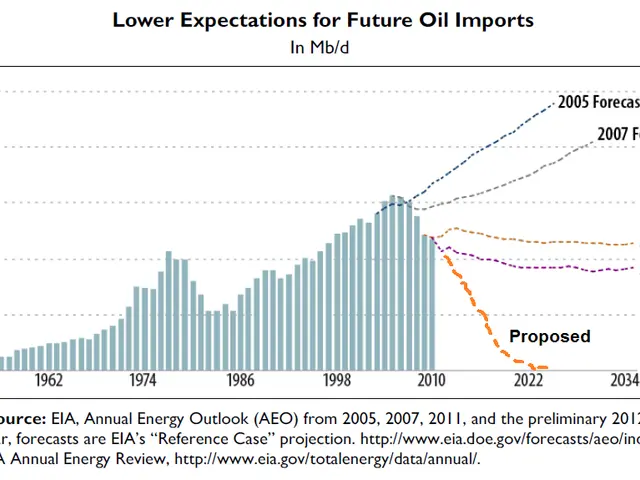Ministry urges Trump to scrap tariffs on imports from Korea
U.S. Automakers Struggle in Korea Amidst Consumer Preferences and Market Dynamics
South Korean Minister of Trade, Industry, and Energy, Ahn Duk-geun, recently met with U.S. Trade Representative Jamieson Greer in Jeju, but the ongoing struggles of General Motors (GM) and Ford in the Korean market persist despite the high-level discussions.
The challenges faced by the U.S. automakers in Korea are not primarily due to regulatory or tariff issues, contrary to claims by former U.S. President Donald Trump. Instead, consumer preferences and competitive market dynamics have been major factors.
Local consumers in Korea prefer vehicles with more modern features and better after-sales service. Brands such as BMW and Mercedes have found success in catering to these preferences, while U.S. automakers have struggled to meet these demands.
Moreover, the market share of U.S. automakers in Korea is relatively small, with sales significantly lower than those of German and Japanese brands. In January 2025, GM sold only 174 vehicles, while Ford sold 366 - a stark contrast to the performance of their foreign competitors.
GM has, in recent years, shifted its focus to exports, with a substantial portion of its vehicles being shipped to the U.S. This strategic decision is partially due to the decline in domestic sales and a desire to maximize manufacturing capacity utilization.
Additionally, GM Korea has sold all its Korean service centers, a potential step toward exiting the Korean market. This decision reflects ongoing challenges in maintaining profitability and market viability in Korea.
While regulatory and tariff issues have been raised as potential barriers, consumer preferences, competitive market dynamics, and strategic decisions appear to be the primary drivers of the struggles experienced by GM and Ford in South Korea.
The South Korean Minister of Trade, Industry, and Energy has met with the U.S. Trade Representative, but discussions have not alleviated the ongoing struggles of U.S. automakers, such as General Motors and Ford, in the Korean market. These challenges stem from consumer preferences for modern features and better after-sales service, as well as competitive market dynamics that have favored German and Japanese brands.
In contrast, American brands have found it difficult to meet these demands, resulting in comparably lower sales figures. To cope with the decline in domestic sales, General Motors has recently made significant changes, including shifting its focus to exports and selling all its Korean service centers.
Meanwhile, Ford sold only 366 vehicles in South Korea in January 2025, while foreign competitors have seen more success. Policy makers, business leaders, and the general public should consider these factors as they navigate the complex landscape of international trade, finance, politics, and general news related to the automotive industry.







